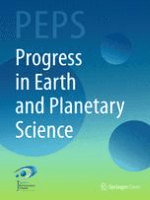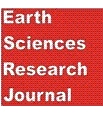
Environmental Earth Sciences
metrics 2024
Unveiling the complexities of our planet through interdisciplinary studies.
Introduction
Environmental Earth Sciences is a prestigious journal published by Springer, dedicated to advancing knowledge in the multifaceted fields of Earth Sciences, including Earth-Surface Processes, Environmental Chemistry, Geology, and Soil Science. With an ISSN of 1866-6280 and an E-ISSN of 1866-6299, this journal occupies a notable position in the academic landscape, consistently ranked in the Q2 category across multiple disciplines in 2023. It supports open access to foster wider dissemination of impactful research, enhancing visibility and accessibility for authors and readers alike. The journal's ongoing commitment to publishing innovative studies and reviews makes it an essential resource for researchers, professionals, and students alike. With a strong focus on addressing contemporary environmental challenges, Environmental Earth Sciences invites contributions that are both original and interdisciplinary, making a significant impact in understanding Earth dynamics and sustainability.
Metrics 2024
 0.63
0.63 2.80
2.80 3.00
3.00 150
150Metrics History
Rank 2024
Scopus
IF (Web Of Science)
JCI (Web Of Science)
Quartile History
Similar Journals

Progress in Earth and Planetary Science
Fostering innovation through open access exploration.Progress in Earth and Planetary Science is a premier open-access journal published by Springer, dedicated to advancing the field of Earth and planetary sciences. Since its inception in 2014, this journal has emerged as a prominent platform, achieving a Q1 ranking in the Earth and Planetary Sciences category, reflecting its high impact and rigorous peer-review process that ensures the highest quality of published research. With its broad scope encompassing diverse subfields within the Earth sciences, the journal aims to foster interdisciplinary collaboration and innovation among researchers, professionals, and students. The journal's commitment to accessibility through its open access model promotes the dissemination of knowledge globally, allowing critical research findings to be shared widely within the scientific community. Located in the United Kingdom, Progress in Earth and Planetary Science continues to play an essential role in shaping the future of Earth and planetary research from 2014 to 2024 and beyond.

Russian Journal of Earth Sciences
Shaping the future of geological understanding.Russian Journal of Earth Sciences, published by the esteemed Geophysical Center RAS, is a pivotal resource for researchers and professionals in the field of Earth and Planetary Sciences. With an ISSN of 1681-1208 and an E-ISSN of 1681-1208, this journal has demonstrated a significant trajectory since its inception in 1998, currently converging towards its 2024 goal of disseminating innovative research. The journal holds a respectable position within the academic community, ranked Q3 in Earth and Planetary Sciences by Scopus, placing it at the 44th percentile among the most relevant journals in the field. Though it operates under a traditional access model, its commitment to advancing scientific knowledge ensures that vital research findings are available to a global audience. Located in Moscow, Russian Federation, the journal not only serves as a platform for high-quality research but also fosters a collaborative environment for scholars aiming to contribute to the understanding of our planet's geological phenomena.

AGU Advances
Bridging Knowledge Across Earth and SpaceAGU Advances, published by the American Geophysical Union, is a premier Open Access journal established in 2020, dedicated to advancing the field of Earth and Planetary Sciences. With an impressive Q1 ranking in the 2023 category of Earth and Planetary Sciences (miscellaneous) and a Scopus rank of #81/195, it serves as a vital platform for researchers, professionals, and students to share their findings and innovations. The journal fosters a collaborative environment, encouraging interdisciplinary approaches and high-quality research that addresses the fundamental questions of our planet and beyond. With its commitment to accessibility, AGU Advances ensures that cutting-edge research is available to a global audience, supporting the dissemination of knowledge that is crucial for addressing current and future scientific challenges. For those keen on contributing to or accessing groundbreaking studies in this dynamic field, AGU Advances is an invaluable resource.

Journal of Asian Earth Sciences-X
Exploring the Depths of Asian GeosciencesJournal of Asian Earth Sciences-X, a distinguished publication by ELSEVIER, is at the forefront of Earth and planetary sciences, particularly focusing on the dynamic fields of geology and earth-surface processes. As an Open Access journal since 2019, it provides unparalleled access to high-quality research, fostering global collaboration and dissemination of knowledge. With an impressive impact factor and ranking in the Q2 category for both Earth-Surface Processes and Geology, it serves as a crucial platform for researchers, professionals, and students alike to share their findings and insights. Situated in the United Kingdom, the journal thrives on contributions that enhance our understanding of Asian geosciences within a broader global context, aiming to tackle major challenges such as climate change and natural resource management. By bridging regional studies with global perspectives, the Journal of Asian Earth Sciences-X is not only a vital resource for academia but also supports sustainable development initiatives across the region.

Journal of Himalayan Earth Sciences
Illuminating the Earth's Processes in the Himalayan RegionThe Journal of Himalayan Earth Sciences (ISSN: 1994-3237; E-ISSN: 2305-6959) is a distinguished publication by UNIV PESHAWAR, dedicated to advancing knowledge in the field of earth sciences, particularly as they relate to the Himalayan region. Established in 2013, this journal aims to provide a platform for researchers, professionals, and students to share original research findings, reviews, and innovative methodologies that contribute to the understanding of geological and environmental phenomena in this ecologically significant area. Despite being categorized in Q4 of the Earth and Planetary Sciences, the journal showcases valuable contributions to the scientific community and encourages submissions that delve into both the challenges and advancements within Earth sciences, with a particular focus on the unique geological structures and processes of the Himalayas. As an open-access journal, it ensures that research is accessible to a global readership, promoting collaboration and discussion among scholars and practitioners. The journal's operational base in Peshawar, Pakistan, places it at the heart of Himalayan research, making it an invaluable resource for those invested in earth sciences.

Journal of the Korean Earth Science Society
Bridging Gaps in Earth Science ResearchJournal of the Korean Earth Science Society is a leading peer-reviewed publication dedicated to advancing research in the dynamic field of Earth sciences. Published by the Korean Earth Science Society, this journal serves as a vital platform for disseminating original research, reviews, and significant advancements in areas such as geology, mineralogy, geophysics, and environmental science. With its ISSN 1225-6692 and E-ISSN 2287-4518, the journal is recognized for its commitment to quality and rigor. Although it does not provide open access options at present, it continues to play a crucial role in informing the scholarly community and enhancing the understanding of Earth science phenomena, thus bridging knowledge gaps and fostering collaboration among researchers, professionals, and students alike. For those interested in the latest developments and innovative research findings in Earth sciences, the Journal of the Korean Earth Science Society remains an indispensable resource.

Journal of Earth System Science
Fostering Collaboration in Earth and Planetary SciencesThe Journal of Earth System Science, published by Indian Academy of Sciences, is a pivotal resource in the field of Earth and Planetary Sciences, boasting an impressive Q2 ranking in 2023. Since its inception in 2005, this journal has been dedicated to advancing our understanding of complex Earth systems, publishing high-quality research that spans across various disciplines within the geosciences. With an E-ISSN of 0973-774X and a commitment to Open Access, it makes cutting-edge scientific insights widely available to researchers and professionals alike. The journal serves as a vital platform for innovative research and critical discussions, making significant contributions to the global scientific community, particularly as we navigate the challenges posed by climate change and environmental sustainability. Located in Bangalore, India, it continues to foster international collaboration and discourse among scholars, reinforcing its role as an essential publication within the Earth and Planetary Sciences domain.

Frontiers in Earth Science
Your Gateway to Cutting-Edge Earth Science DiscoveriesFrontiers in Earth Science is a leading open-access journal published by FRONTIERS MEDIA SA, based in Switzerland. With its ISSN N/A and E-ISSN 2296-6463, this journal has firmly established itself in the realm of Earth and Planetary Sciences, evidenced by its exceptional Q1 ranking in the 2023 category of Earth and Planetary Sciences (miscellaneous) and a solid position of Rank #66/195 in Scopus, placing it in the 66th percentile among its peers. Since its inception in 2013, Frontiers in Earth Science has embraced the open access model, promoting widespread dissemination and accessibility of research findings. The journal covers a broad scope, including areas such as geology, meteorology, oceanography, and environmental science, fostering interdisciplinary communication and advancement. Researchers, professionals, and students looking to stay at the forefront of Earth science research will find an invaluable resource in this journal, which not only curates high-quality research but also supports innovative and impactful studies that address the pressing challenges facing our planet today.

Geofizika
Exploring the Depths of Geophysics TogetherGeofizika, an esteemed journal published by the Andrija Mohorovičić Geophysical Institute at the University of Zagreb, presents a significant platform for research in the fields of geophysics and Earth sciences. With an Open Access model established since 1984, this journal ensures that scientific knowledge is accessible to a broad audience, encouraging collaborations and the free exchange of ideas. Geofizika has steadily evolved through its converging years from 1989 to 1999 and has been active from 2003 to the present, reflecting its commitment to advancing geophysical research. The journal has been recognized for its contributions to Earth and Planetary Sciences and has acquired respectable ranks in various categories; notably, it holds a Q4 status in Geophysics as of 2023. Researchers, professionals, and students will find Geofizika a valuable resource for the latest discoveries and methodologies in geophysics, supporting the academic community in expanding the frontiers of knowledge in these vital scientific domains.

Earth Sciences Research Journal
Illuminating the Path to Earth’s PreservationThe Earth Sciences Research Journal, published by the UNIV NACIONAL DE COLOMBIA, serves as a pivotal platform for the dissemination of knowledge in the diverse field of Earth and Planetary Sciences since its inception. With an ISSN of 1794-6190 and an E-ISSN of 2339-3459, this Open Access journal has been committed to providing unrestricted access to high-quality research since 2004. Located in Bogotá, Colombia, it has gained recognition within the academic community, achieving a Q3 quartile ranking in Earth and Planetary Sciences and notable Scopus rankings, which further underscores its relevance and reach. Its scope encompasses varied research topics, making it an essential resource for researchers, professionals, and students alike, seeking to contribute to or stay informed on the latest developments in the Earth sciences up to the year 2024. The journal not only anticipates cutting-edge research but also emphasizes collaborative dialogues among global experts, driving forward the conversation on critical issues facing our planet.